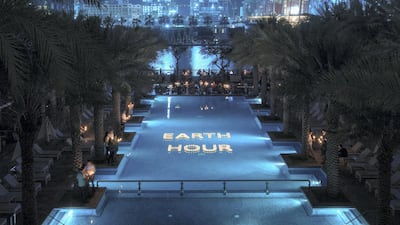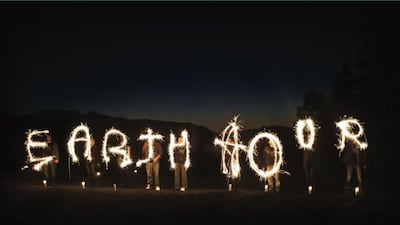At 8.30pm on Saturday, lights will dim around the world as individuals, businesses and leaders unite to mark Earth Hour.
The annual event encourages people to switch off all lights and non-essential electrical appliances for one hour in a bid to reduce their carbon footprint. But, as the event's website states: “It is so much more than that. It is a symbol of unity. It is a symbol of hope. It is a symbol of power in collection action for nature.”
It’s an event that is meant to encourage people to reflect on the importance of nature and the role that we can all play in protecting our planet. And this year, people are also being encouraged to reflect on the link between the health of our planet and the global health crisis that we are currently living through.
''Whether it is a decline in pollinators, fewer fish in the ocean and rivers, disappearing forests or the wider loss of biodiversity, the evidence is mounting that nature is in free fall. And this is because of the way we live our lives and run our economies. Protecting nature is our moral responsibility but losing it also increases our vulnerability to pandemics, accelerates climate change, and threatens our food security," says Marco Lambertini, director general of WWF International.
"We must stop taking nature for granted, respect its intrinsic value, and – importantly – value the crucial services it provides to our health, wellbeing and economy. We need to unite and take urgent action now to set nature on the path to recovery and secure a nature-positive world, while supporting climate action. By acting for nature, we can all create a healthier, fairer and more sustainable world.”
This is a message reiterated by Eva Zabey, executive director for Business for Nature. "Covid-19 has given us a stark warning of the risks, vulnerabilities and inequalities of our interconnected systems – and what’s at stake for everyone if we cannot mobilise action.
“Leading companies recognise they need to act now to both cut greenhouse gas emissions and reverse nature loss by 2030. Earth Hour is taking place during a critical year, when world leaders are due to agree an ambitious global agreement on nature. Let us use this symbolic moment to think about how we work together – across society, business and government – to change our course towards a nature-positive, net-zero and equitable future.”
Famous landmarks around the world, including the Eiffel Tower, Tokyo Skytree, Hong Kong's Victoria Harbour, Brandenburg Gate in Berlin, St Peter's Basilica in Vatican City, the Colosseum in Rome and Sydney Opera House will be switching off their lights on Saturday, in a symbolic gesture in support of Earth Hour.



